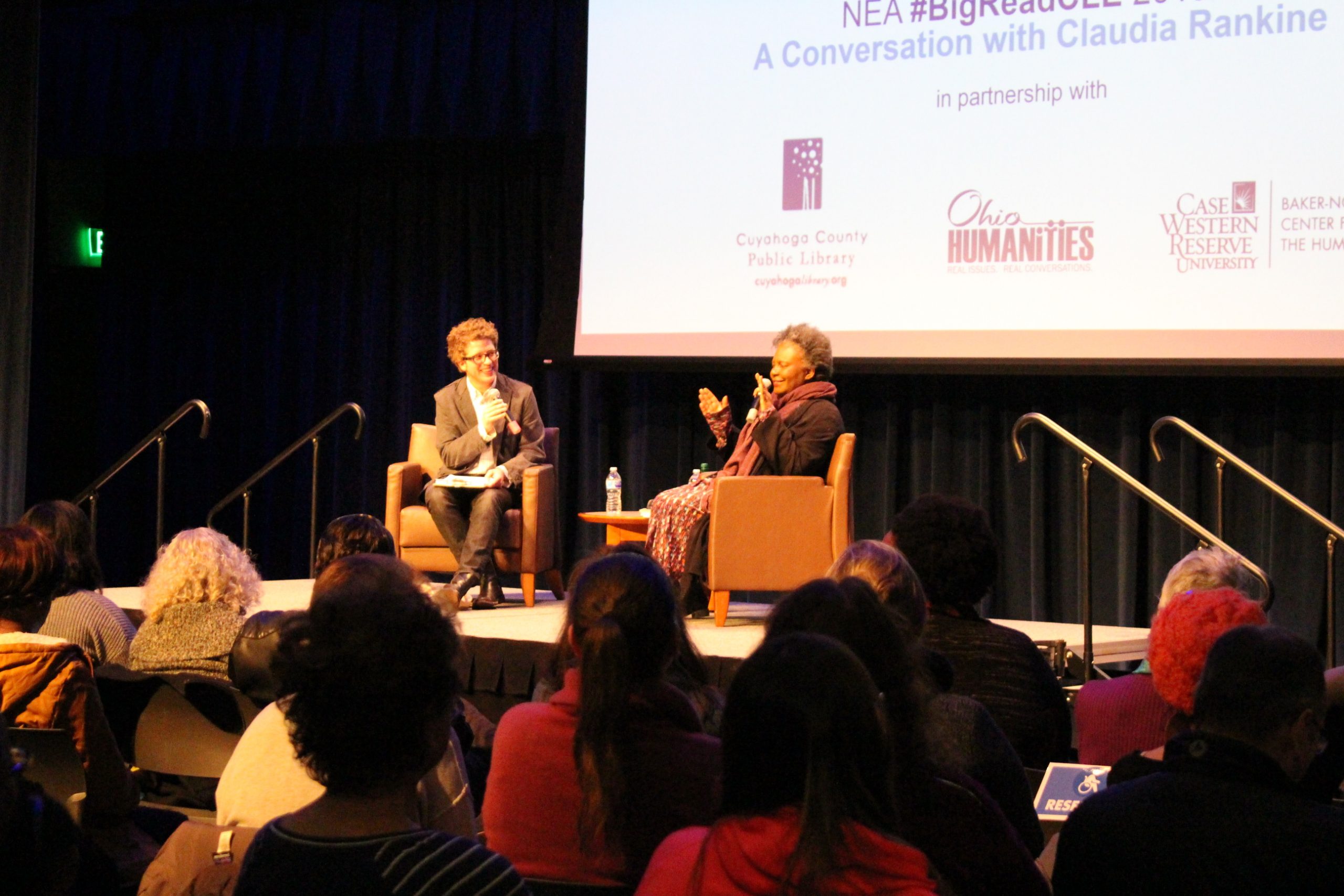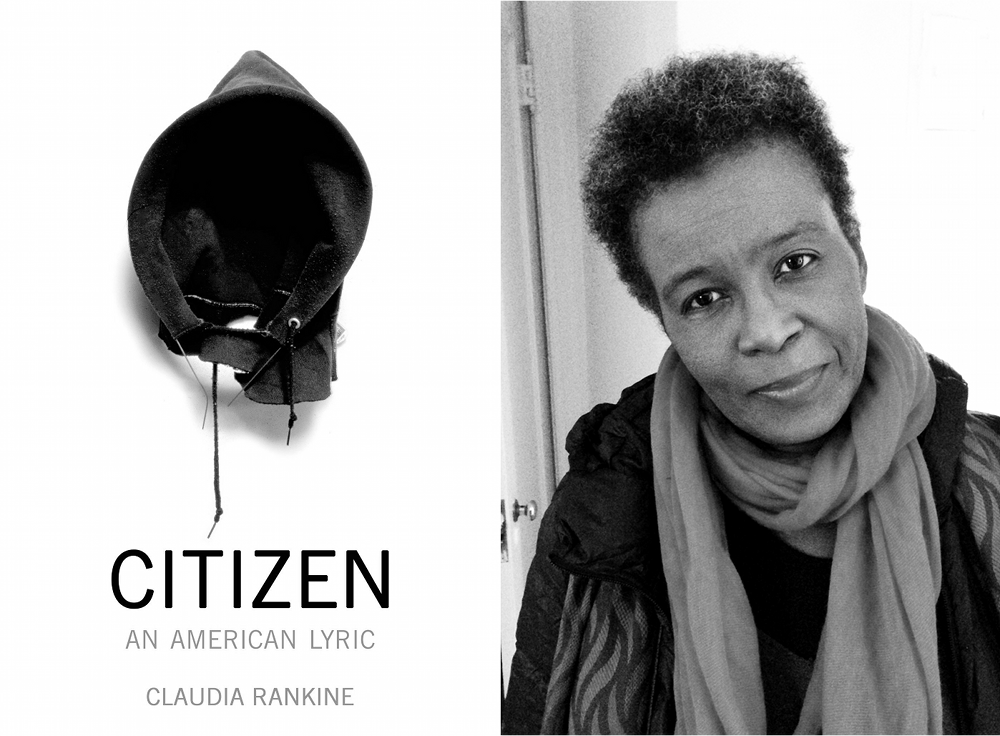Poet Claudia Rankine, born 56 years ago in Jamaica, returned to the city of her first college teaching post to kick off a community read of her slender, seminal book, Citizen: An American Lyric.
“In a sense, I am home,” she told a Cleveland audience. “My husband grew up here. My time here was very important. I met my husband at Mac’s Backs-Books on Coventry and I had my very first teaching job here.”
The crowd, gathered in the Parma-Snow auditorium of the Cuyahoga County Public Library, cheered this bibliophilic beginning to romance. Rankine, a Yale University professor and chancellor of the Academy of American Poets, saw her first book, Nothing in Nature is Private, published in 1994 by the Cleveland State University Poetry Center.
Filmmaker John Lucas, Rankine’s husband, has collaborated with her on several projects, most recently an art exhibition in Brooklyn last year that explored blondness called “Stamped.” Lucas is white and Rankine is black.
“It is possible to love white people as family, friends and colleagues but that does not disallow them acting on racism,” Rankine said. “What allows you to feel safe is you can call it. You can say, ‘That’s racist,’ and they don’t run screaming from the room or cry. They say, ‘Oh yeah, that’s right.’”
Wearing one of her signature purple-infused scarves and crossing her ankles in black boots, Rankine spoke mellifluously and frankly: “America is an anti-black society.” She interrupted herself often to recommend books – White Fragility by Robin DiAngelo, Just Mercy by Bryan Stevenson and especially The Master’s Tools Will Never Dismantle the Master’s House by Audre Lorde.
But before she found these books, when Rankine was an undergraduate studying at Williams College in Massachusetts, she read poetry by Adrienne Rich, followed by prose of James Baldwin.
“I remember thinking as I was reading Adrienne Rich that I really liked this stuff but that I could do this better, something only an 18- or 19-year-old would think,” Rankine said. “But I also understood later that this was because I wasn’t included in this thing I was reading. When I got to Baldwin, there I was, and there was no going back.”
The poet told a version of this literary baptismal story the next day for about 1,000 high school students gathered at the Maltz Performing Arts Center. She recommended they see Ava DuVernay’s documentary “13th.” She urged them to make sure family members vote. Students asked her about the school-to-prison pipeline, the cover of her book and why she wrote Citizen in a second-person voice.
“Everybody commits crimes,” Rankine said about the false narrative of black criminality. “Our president commits crimes. You can’t be a black kid walking around in a hoodie. It takes away your citizenry.”
She employed the “you” pronoun, Rankine said, “so you have to wonder who the ‘you’ is. It’s a way to answer those people who say they don’t see color, they don’t see race.”
Rankine, a MacArthur Foundation “genius” recipient, is an exacting observer who takes pains to document the language and slipperiness of racism in day-to-day exchanges – from the news commentary in the wake of Hurricane Katrina to the treatment of Serena Williams on the international tennis circuit.
“Sports have always been a ground where racial politics play themselves out, not just here, but across the globe,” she said. “Now, you can see these matches on Youtube. Everything is recorded, watched, check-able.”
In a droll voice, the poet said, “I’ve been in the world awhile. I think people mean what they say.”
Rankine noted that Serena Williams was called on a foot fault in the quarterfinals of the Australian Open – the writer stressed that she wasn’t contesting the validity of the call – but on the next play Williams turned that ankle.
“The amount of trauma black people carry around in their bodies because of racism is profound,” she said. “It throws the woman off.”
Charles Ellenbogen, an English teacher at Campus International School in Cleveland, said he appreciated how well Rankine taught, how intently she listened and how she spoke to students as individual human beings.
Rankine told them, “It’s good for you to know that you go out in the world and there will be people who don’t have your best interests at heart. It’s important to read to know that there are people who have negotiated this world successfully and happily. It can be done.”
More conversations about Citizen will unfurl through the next seven weeks; venues available here.

